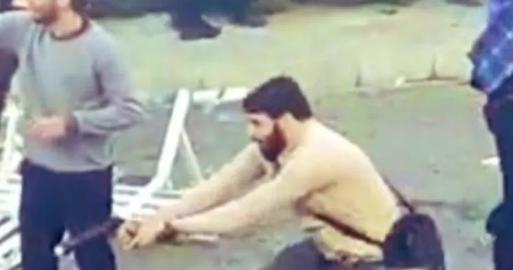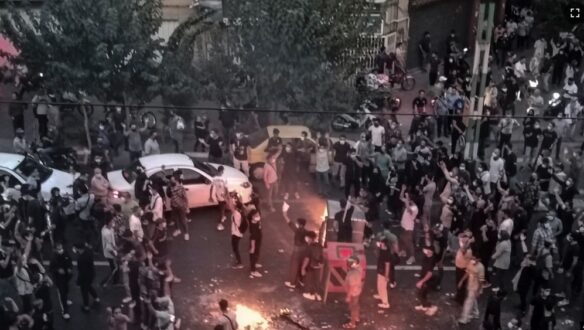Iranwire – For the first time in the Islamic Republic’s more than four-decade history, a high-level Iranian Shia cleric has issued a fatwa, or Islamic decree, making it “mandatory” for Muslims to defend themselves or other Muslims against armed plainclothesmen.

According to Shia religious jurisprudence (Fiqh), failing to undertake a “mandatory” action is a sin for Muslims, like refusing to pray or fast.
The new fatwa is significant since the Islamic Republic’s repressive system uses a vast number of armed plainclothes agents who routinely use weapons to brutally attack and detain Iranians, causing irreparable bodily harm or death.
More than 300 people have been killed in a state crackdown since a nationwide wave of protests erupted in mid-September, according to human rights activists. Thousands of people have been arrested, with many detainees being subjected to torture. Many of the human rights abuses against the mainly peaceful protesters have been committed by plainclothesmen.
It is practically impossible to distinguish plainclothes agents from criminals, robbers or anyone who intends to commit a violent crime. Recently, military officials claimed that individuals in uniforms who attacked people’s home and destroyed their vehicles were “fake agents” who had donned the armed forces’ uniforms.
Ayatollah Asadollah Bayat Zanjani in Qom has been asked: “If an unknown person armed with firearms or other weapons attacks a Muslim, what is the duty of a Muslim who witnesses this attackto protect the life of a fellow Muslim who is in danger?”
“Based on the assumptions presented by the question, a proportionate defense is mandatory,” the Shia marja, or “source of emulation,” answered.
The 1996 Islamic Penal Code recognizes people’s right to “legitimate defense,” but now ahighreligious authority has endorsed the right to defense against armed individuals without uniforms.
Fatwas issued by marjas are considered authoritative by the Iranian judiciary.
The person who provided IranWire with Ayatollah Bayat Zanjani’s fatwa also showed evidence that eight other Iranian and Iraqi marjas have been asked the same question. Their answers are not known.
Before the 1979 Islamic Revolution, sources of emulation were highly trusted by Shia communities, but they have now lost a lot of their credibility because marjas remain silent when asked questions whose answers might contradict the views of Supreme Leader Ali Khamenei, who has the last say on state matters in Iran.
The widespread use of plainclothes security agents is the result of Khamenei’s more than three decades of rule. However, the government does not take responsibility for these agents’ actions, and it is not officially clear whose orders they follow and who they are accountable to.
Over the past three decades, plainclothesmen have even attacked the offices and homes of marjas whose views were at odds with those of Khamenei. One was Ayatollah Hossein Ali Montazeri who, in the early years after the revolution, was the heir apparent of the Islamic Republic’s founder Ayatollah Khomeini. Montazeri fell out of favor for his opposition to serious human rights abuses by the regime, including the massacre of thousands of political prisoners in the summer of 1988.
 Shabtabnews In this dark night, I have lost my way – Arise from a corner, oh you the star of guidance.
Shabtabnews In this dark night, I have lost my way – Arise from a corner, oh you the star of guidance.



